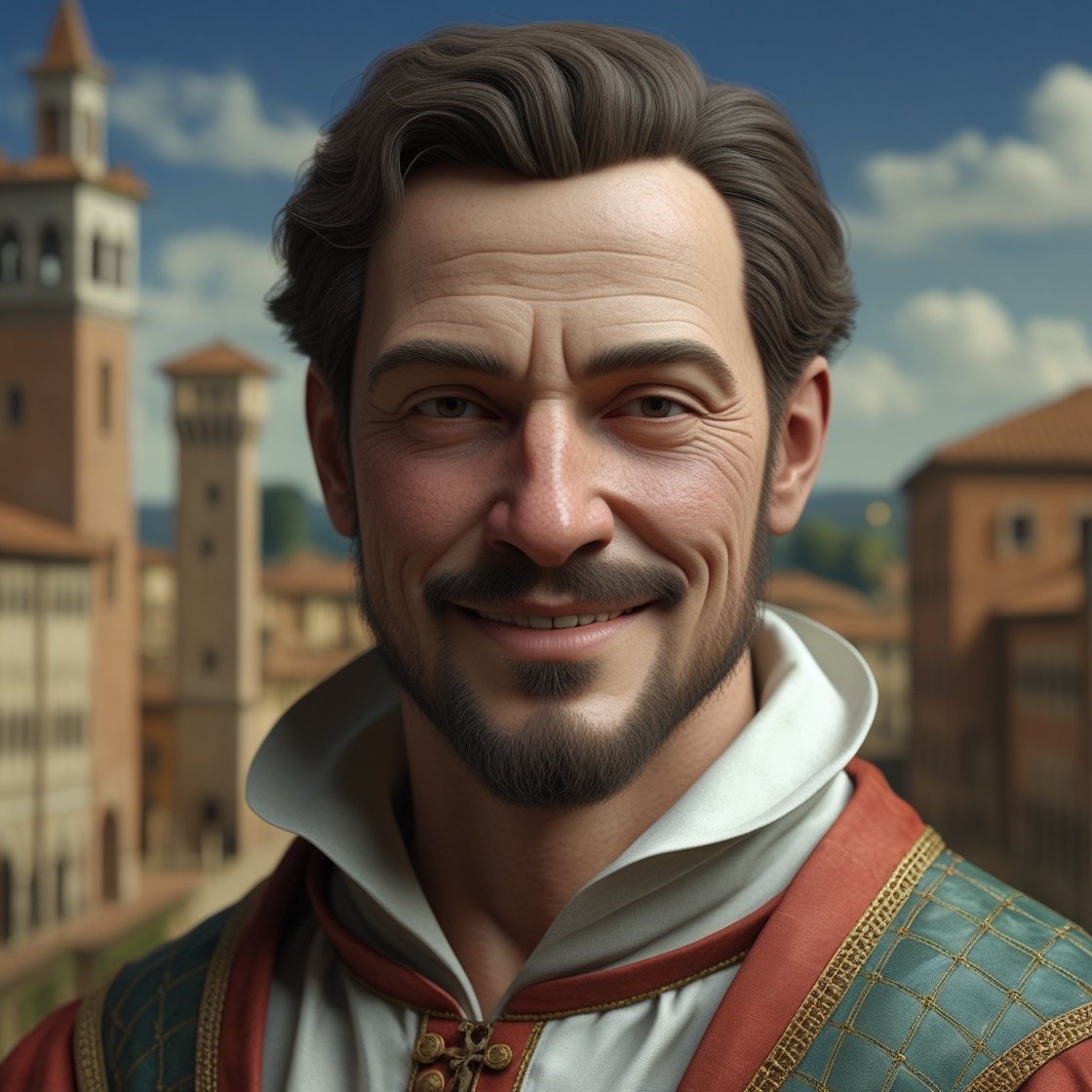MATHEMATICAL MARVEL: An Interview with Dottore Gerolamo Cardano

We sit down with the brilliant physician-mathematician from Padua whose Ars Magna has revolutionized algebra.
RENAISSANCE WEEKLY: Dottore Cardano, you've achieved fame across Europe for both medicine and mathematics. How do you balance these seemingly different pursuits?
Ah, but they are not so different, my friend!
Both require careful observation, logical reasoning, and the ability to see patterns others miss. When I examine a patient's symptoms, I use the same methodical approach I apply to solving cubic equations. The human body follows natural laws just as numbers do - both can be understood through proper study and application of reason. In fact, my work with probability theory began through my... shall we say, extensive experience with games of chance, which taught me much about calculating odds and outcomes.
Your Ars Magna has caused quite a sensation. Can you tell us about the controversy surrounding the cubic equation?
[sighs and strokes his beard]
The affair with Tartaglia was most unfortunate. I gave my word to keep his method secret, yes, but when I learned that Scipione del Ferro had discovered the solution years earlier, I felt my obligation had changed. Ferrari and I had also developed new insights that advanced the work considerably.
Should such knowledge remain hidden when it could benefit all scholars?
[becomes more animated]
My book gives full credit to both Tartaglia and del Ferro! I did not steal - I revealed and expanded upon existing knowledge for the good of mathematics.
You mention Ferrari - tell us about your collaboration with your former servant.
Lodovico is brilliant, perhaps more so than his humble origins would suggest. I recognized his mathematical gifts early and took him as my student.
While I solved the cubic, he conquered the quartic equation - a remarkable achievement! It demonstrates that genius can emerge from any station in life.
The collaboration between master and student, when both are dedicated to truth, can achieve wonders that neither could accomplish alone.
Your reputation as a physician has brought you attention from the highest circles. Have you really treated royalty?
[preens slightly]
Indeed! Kings and nobles from across Europe have sought my services. I have turned down offers from the King of Denmark, the King of France, and the Queen of Scotland - my independence is worth more than any court position.
Though I must admit, I did recently agree to travel to Scotland to treat Archbishop Hamilton's severe breathing difficulties. The challenge of such complex cases intrigues me more than royal favour ever could.
You're known for your work in several fields beyond medicine and mathematics. What drives such diverse interests?
The natural world reveals its secrets through many paths!
My studies of mechanics led me to devise new machines - a universal joint that allows motion to be transmitted at various angles, and a gimbal system for keeping instruments level. I've investigated dreams, weather patterns, even the probability of dice games.
[laughs]
Some say I'm too scattered, but I believe all knowledge is connected. Understanding one area illuminates others.
We understand you've had some difficulties with the College of Physicians in Milan due to your... outspoken nature.
[expression darkens]
Those pompous fools! They rejected me for years because of my illegitimate birth and because I dared to criticize their ignorance.
So I wrote a treatise exposing their incompetence - seventy-two specific criticisms of their practices!
[becomes more heated]
They hide behind ceremony and tradition while patients suffer from their ignorance. I may be difficult, but I am right, and I will not pretend otherwise for the sake of social acceptance.
That's quite bold. Has this outspokenness affected your career?
It has caused... complications, yes. But I have gained the respect of those who truly matter - patients who have been cured, scholars who understand my work, students who learn from my teachings.
When you possess real knowledge and skill, eventually merit will triumph over politics. Though I admit, the path is not always smooth.
[pauses]
I believe the English are more open to new ideas - perhaps that is why my work interests Dr. Dee.
What are your future plans? Any new mathematical discoveries in the works?
I am always working on something new! Currently, I'm developing a more systematic approach to probability - imagine if we could calculate the likelihood of any event, from dice throws to planetary motions.
I'm also writing on the subtlety of all things - how the natural world operates according to discoverable principles.
[leans forward conspiratorially]
And I have ideas about improving our understanding of complex numbers, though that work may scandalize the traditionalists even more than my medical criticisms.
Any advice for young scholars who might face similar resistance to new ideas?
Persist!
Truth has a way of emerging despite opposition. Study mathematics - it trains the mind to think clearly and logically. Don't be afraid to challenge established authorities if you have evidence on your side. And remember, the greatest discoveries often come from combining knowledge from different fields. The scholar who only knows medicine, or only mathematics, or only philosophy, will miss the connections that lead to true understanding.
Final thoughts for our readers?
We live in an age of wonders - new lands are being discovered, ancient texts recovered, mathematical truths revealed.
But the greatest discoveries are yet to come, and they will be made by those brave enough to question everything and persistent enough to seek answers wherever they may lead. Whether in the movement of the stars, the circulation of blood, or the solution of equations, nature's secrets await those with the courage to seek them.
Dottore Cardano spoke with us at his lodgings in Milan, surrounded by books, mathematical instruments, and medical texts. His intensity and passion for knowledge were evident throughout our conversation, as was his absolute confidence in his own abilities - a trait that has clearly served him well despite the controversies it has sometimes generated.